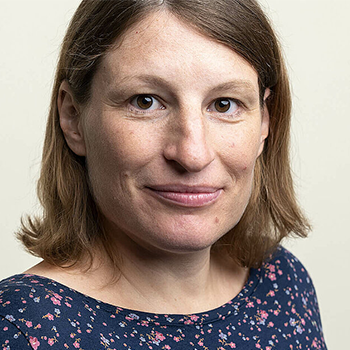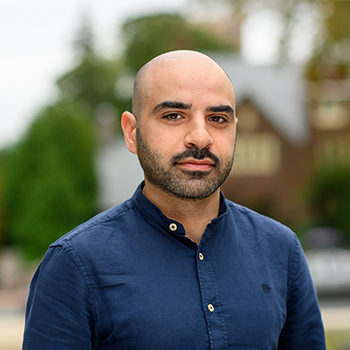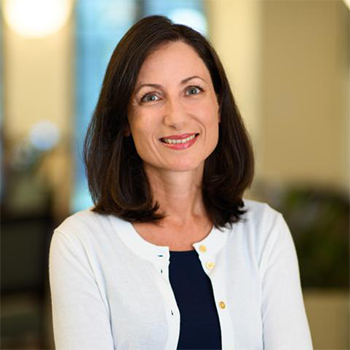Priority Theme Spotlight: Ruth Ditlmann, Jeyhun Alizade, and Rafaela Dancygier



Author: Jaclyn Leaver
Theme: Displacement, Migration, and Integration
In today’s Priority Theme Spotlight we spoke with EGAP member Ruth Ditlmann (Hertie School), along with co-authors Jeyhun Alizade (Princeton) and Rafaela Dancygier (Princeton), about their article “National Penalties Reversed: The Local Politics of Citizenship and Politician Responsiveness to Immigrants” in The Journal of Politics. We discussed how local German politicians behave towards Turkish and Canadian immigrants who are seeking German citizenship and the implications of this behavior for organizations, civil society groups, and other groups working with immigrants to gain citizenship around the world.
This study looks at whether local German politicians discriminate against Turkish and Canadian immigrants who are seeking to become citizens, and whether that discrimination corresponds to what is suggested by the country’s national citizenship debates and public opinion polling. What are some of the characteristics of discrimination suggested by public opinion polling and citizenship debates in Germany?
Ruth Ditlmann, Jeyhun Alizade, and Rafaela Dancygier: One important dimension of the citizenship debate in Germany revolves around the national identification with Germany among eligible immigrants. Especially politicians on the Right have claimed that liberalizing naturalization law would make it easier for immigrants who do not identify with Germany and/or are poorly integrated to pick up German citizenship for purely pragmatic reasons (e.g., easier travel, access to certain jobs). In their view, naturalization should rather be a reward for successful integration and identification with Germany, while politicians on the Left tend to view citizenship as a tool for integration.
In this context, dual citizenship has been particularly contested. Especially for politicians on the Right, refusal to renounce one’s existing citizenship signals divided loyalties and dilutes the value of German citizenship. One prominent center-right politician even claimed that it reduces the German passport to “a piece of junk” that “people just pick up along the way.”
Turks—the largest immigrant-nationality in Germany—have often been at the center of these discussions. As a sizeable Muslim-majority group, Turks are frequently targeted for prejudice and discrimination, for instance in the labor and housing markets. These patterns correspond to results from public polling. For example, in our own survey among German citizens, we established that Turks are perceived significantly different from Canadians—the comparison group in our correspondence studies. Turks were rated as more culturally distant to Germans, less educated, and more poorly integrated than Canadians. In addition, our respondents viewed the naturalization of Canadians more positively than that of Turks and expected Turks to face more discrimination during the naturalization process. These expectations are in line with previous results, which generally show that groups with low social or integration status will face more discrimination than those with higher status.
For this project, your team used a mixed methods approach to learn whether nationality or signals of attachment and national identification affect how local politicians approach immigrants who want to naturalize. What were some of the methods you used and what were the primary findings from this study?
RD, JA, and RD: We designed two correspondence studies with more than 4,000 local councilors across Germany. We contacted politicians via emails sent by putative immigrants asking for assistance in the naturalization process. By randomly varying the characteristics of the sender we were able to investigate if nationality and factors that are salient in the national citizenship debate matter for politician responsiveness to immigrants. In the second correspondence study, we further tested if priming electoral incentives or the desire to promote immigrants’ integration in the email text has an effect on politicians’ response behavior.
In addition to the correspondence studies, we conducted two original surveys with German citizens to pre-test our email texts and to confirm our intuition that Turks are perceived as an immigrant group that faces more obstacles to integration than Canadians. Finally, to better understand the mechanisms driving our results from the correspondence studies, we conducted elite interviews with local politicians, employees in local naturalization offices, and representatives of NGOs working in the citizenship field.
Our findings were surprising: In contrast to what the national citizenship debate suggests, we did not find that signals of national identification or willingness to renounce one’s existing citizenship affect the responsiveness of local politicians. Instead, the nationality of the immigrant played a key role: Turkish email-senders were 50 percent more likely to receive a response than Canadians. Thus, unlike labor or housing markets, where Turkish immigrants face discrimination, local politicians were more responsive to Turks relative to a more privileged immigrant group. Our exploration of mechanisms through a second correspondence study and elite interviews indicates that this disconnect between national debates and local politics is due to the desire of local elites to promote the integration of Turks as a sizable, low status group and enhance the legitimacy of local democracy by raising electoral participation through naturalization.
How do these findings complement the existing literature on integration, discrimination, and citizenship acquisition?
RD, JA, and RD: As we show in the paper through a systematic analysis of existing discrimination studies in the social sciences, ours is the first correspondence study that finds a higher response rate for the low-status minority. The same attributes (size, national origin, integration status) that seem to be driving the higher response rate in the political sphere, are typically associated with discrimination in private markets or social interactions.
We also contribute to the literature on citizenship by zooming in on local politicians, who are often on the front lines of policy implementation. Statistics show that there is significant variation in naturalization rates between German municipalities. We also know that local politicians play an important role in enhancing naturalization outcomes in their towns, for example by developing campaigns that aim to increase citizenship acquisition among immigrants. Our study is the first to systematically examine the factors that motivate these key players in the citizenship field to promote naturalization. We find that their behavior is less guided by partisan national debates and more by local service concerns.
What are the implications of the project’s findings for politicians, policy makers, non-profit organizations, and civil society groups working with immigrants to acquire citizenship in Germany and, if applicable, in other countries around the world?
RD, JA, and RD: Our findings imply that NGOs working with immigrants may want to collaborate more with local politicians, who know their municipalities well and can thus help immigrants navigate the naturalization process, for example by pointing them to the right authorities. While local politicians cannot influence the outcome of a naturalization application, which is a strictly legal and bureaucratic process, they are well connected and can refer immigrants to people in the municipality who are acquainted with the subject.
Our results also demonstrate that a sizable number of local politicians is committed to the integration of immigrants. Governments and NGOs can do more to educate local politicians on how to best help immigrants integrate into the local community, for instance by introducing them to volunteering opportunities (and thereby indirectly helping an immigrant’s naturalization outcome, as participation in civil society associations is taken as a signal of integration by local authorities).
They can also do more to connect immigrants with local politicians. Along these lines—and to raise the impact of our results and to provide a public good—we designed a leaflet with information for immigrants who want to naturalize. It includes general information about naturalization but also informs immigrants about how local politicians can (and cannot) be of help during the naturalization process. We distributed the leaflet in four languages (German, English, Turkish, and Arabic) to NGOs who work with immigrants across Germany.